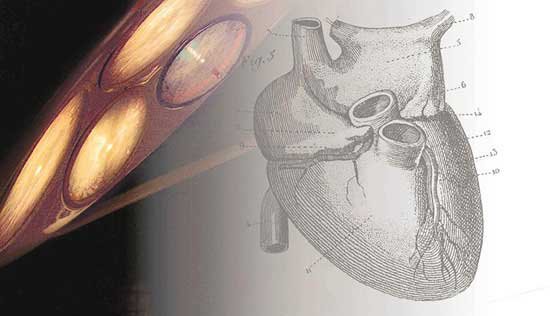Medical definition of death tested by organ donations
By Tasha Kates
tkates@dailyprogress.com | 978-7267
Thursday, November 15, 2007
In May 1968, Bruce Tucker entered the Medical College of Virginia Hospital with a serious head injury from a fall. Within one day of his arrival, his heart was removed from his body.
Dr. Richard Lower, a surgeon at the hospital, had a potential recipient in need of Tucker’s heart. The injured man was one of the first organ donors, and had been declared dead before the hospital had determined he met the criteria to be determined dead.
Dr. Susan E. Lederer and Dr. Timothy L. Pruett presented Tucker’s case as part of a historical perspective of death and organ transplantation Wednesday during the University of Virginia’s Medical Center Hour, a free weekly lecture produced by the Center for Biomedical Ethics and Humanities. Lederer is an associate professor of the history of medicine, history and African-American studies at Yale University. Pruett is the Strickler Family Professor of Transplantation at UVa and this year’s president of the United Network of Organ Sharing.
Issues surrounding death and organ donation continue today. Last year, Kaiser Permanente surgeon Dr. Hootan Roozrokh was brought up on charges of ordering drugs to hasten a patient’s death so he could become an organ donor.
Pruett said that incident in San Francisco gives patients a bad impression about organ donation.
“We’re trying to skirt the balance of trust and mistrust,” he said.
As organ transplants began to become more common in the 1960s, doctors realized there were many ethical issues surrounding death. Lederer said that led to the creation of the Harvard criteria for brain death, developed in 1968. Harvard
defines brain death as a non-functioning brain, but Lederer said that hasn’t made determining death easier.
“There continues to be ambiguity about at what moment someone is dead,” Lederer said.
Pruett said each state has different criteria for when a person is dead, although most follow Harvard’s rules. In Tucker’s case, Lederer said doctors didn’t run a required second neurological test before declaring him dead. His family wasn’t aware he was hurt until almost a day after the accident.
“In order to be available to surgeons, he was pronounced ‘unclaimed dead,’” Lederer said. “Waiting 24 hours would have made the organs less useful.”
The United Network of Organ Sharing is still looking for a solution to the nation’s shortage of organs for sick patients. Pruett said it would take more than altruism, but paying for organs might not be the solution either.
“I’m reviewing a paper from Pakistan looking at organs from vendors and altruism,” Pruett said. “The vendors all do worse.”

No comments:
Post a Comment